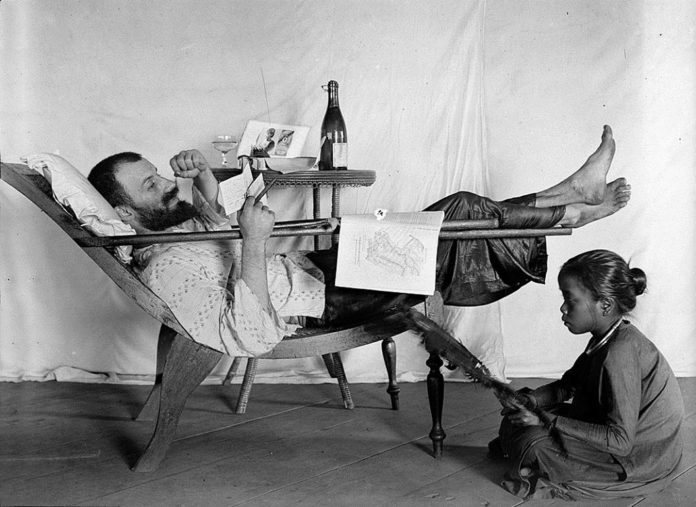COMMENT
I really did not want my essay for a writing contest to be about colonialism in 2019. But what to do when we live with the impact in full bloom and our dreams speak louder of a more human humanity, asks ISRAEL CAMPOS.
The idea that there is a race superior to all others has been, and continues to be, responsible for wars, destruction of nations, deaths, loss of cultural identity (for many, like me) and ruin of futures. To the present day, regrettably, this concept continues to cause division, create hatred, and confirm that, as Mandela says, “the road to freedom is long.”
I was in contact with my country’s historical past at home and at school. At that time, I had no idea how important it was for me to know why I was learning Portuguese at school while my maternal grandmother spoke the Angolan national language, Kimbundu. I did not understand that without knowing my nation’s past, I would not be able to know who I was and where I wanted to go. As time went on, I was able to answer some questions that were posed in the head of a curious 10-year-old boy from a country that lived through 500 years of Portuguese colonisation. Only a few. For others remain present until today and motivate me, with pain in my soul, to write this essay.
Responsibility for the way I dress, walk, eat, the language I speak, and even at times the way I think, is attributed to a process that, in simple words, originated from the fact that a certain group of people believed that their skin gave them power and advantage over everything, including other people. It is in this way that I define the process of colonization that began in the sixteenth century, and changed the world forever.
To speak of the colonial past and its effects on the lives of the colonised, is to talk unquestionably about racism and about how the coloniser is responsible for the judgment by the color of the skin and the prejudice that I and thousands of others live with. This process that had its “formal” end in the last century continues to be the reason for tears and suffering in a world that wants to see progress. The legacy of colonialism continues to this day.
Most African countries are still in the process of development. It so happens that after African countries had achieved their long-desired independence from the settler, so that they could be the owners and decision-makers of their own destiny, many African countries became involved in internal wars, which slowed their development.
I often hear of supposed benefits left by the settler in Africa: infrastructures, economic advantages, and above all “civilisation”. In an article, Bruce Gilley, known to advocate for the return of colonialism, points to supposed benefits of colonization. He claims that Western colonialism was a rule “both objectively beneficent and subjectively legitimate in most of the places where it was found.”
As a reinforcement of his belief in colonialism as a mechanism of progress and development in African nations, he continues by expressing his hope in the return of colonialism “either as a governance style or as an extension of Western authority”.
Unfortunately, Gilley’s views give voice to many who actually believe Africans should not be responsible for the destiny of their countries. Africans do not need anyone to tell them what to or not to do. We say thanks for your intention, but we deny it too.
Gilley of course is a white man. Such a hard role for him to play, is it not?
It requires a lack of ’empathy’ and complete blindness not to see the suffering of others. And extreme arrogance to feel the right to determine the path that we should trace, even in our own lands.
What would become of us, Africa, if we could, by our own feet and our will, follow our ways? I will never know… Because the white man thought we did not even have the right to dream.
I’ve experienced racism on several levels. From the more subtle to the more direct. From being told very loudly on the street: “You don’t deserve to be in this country. Go back home!” to not have anyone sitting next to me on a bus, which was not a big surprise knowing Britain’s historical relation with racism. However, what did surprise me was the fact that every time I reported what had happened, I felt like I was asked to prove that I was telling the truth, a way of denying my lived experience.
Times have changed, it is said, but this problem remains a reality in England and in many other coloniser nations.
These bold, representative voices of racism mean exactly what they say. But what they themselves do not know is that we are here because they were there. A simple phrase. Which translates in a few words what I intend by this text, which is that causes are as important as the consequences.
The impacts and consequences of colonisation remain present as evidenced in the lines of this text. In the daily life of the so-called immigrant in their country of birth and in every “go back home” addressed to thousands of people, like myself, spread by the “mother countries” in search of light, education and health, which we wish to bring back to our homes.
When the subject passes from the historical past to a feeling there is not much that laws can do; it becomes about emotions, notions and human being.
The solution is in the encounter of a common denominator, which is to sit down at the same table and talk, to agree that there is a problem that needs to be solved.
It is only going to happen if it is understood that racism should not only be a problem for those who suffer it but also for those who practice it. And only then can come talk of progress!
Israel Campos is a correspondent for Rádio Nacional de Angola from the United Kingdom.
This essay was the winning entry in the Sixth Form Essay Writing Competition by the UK’s Independent Schools Association ( ISA)
The views expressed in this article are the author’s own and do not necessarily reflect the editorial policies of The Daily Vox.
Featured image via Flickr









